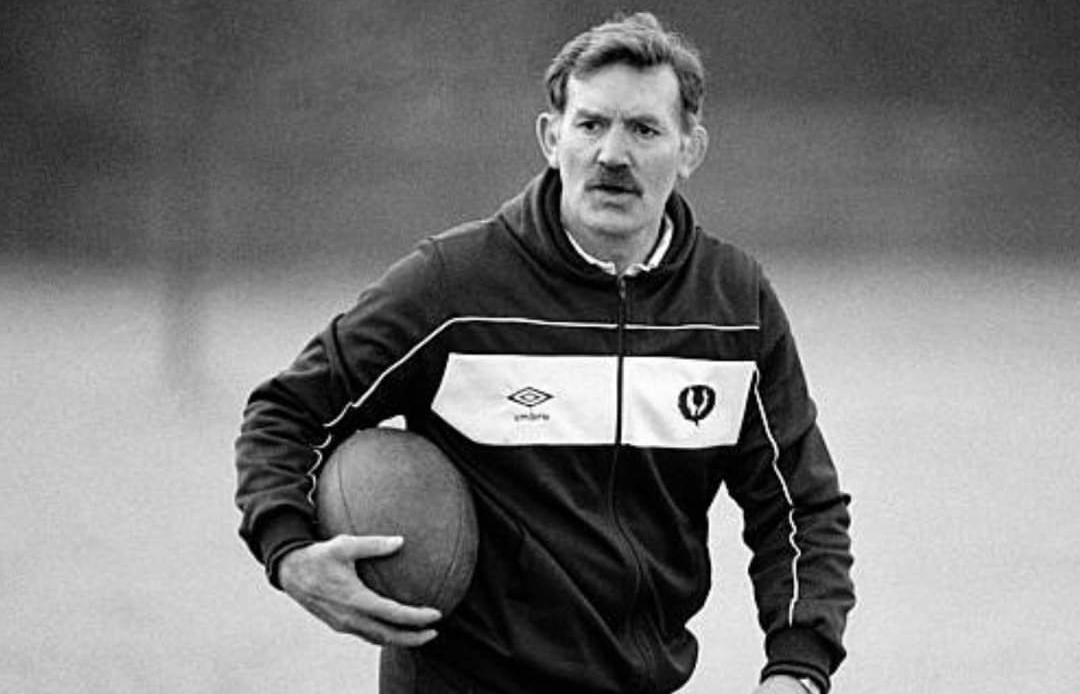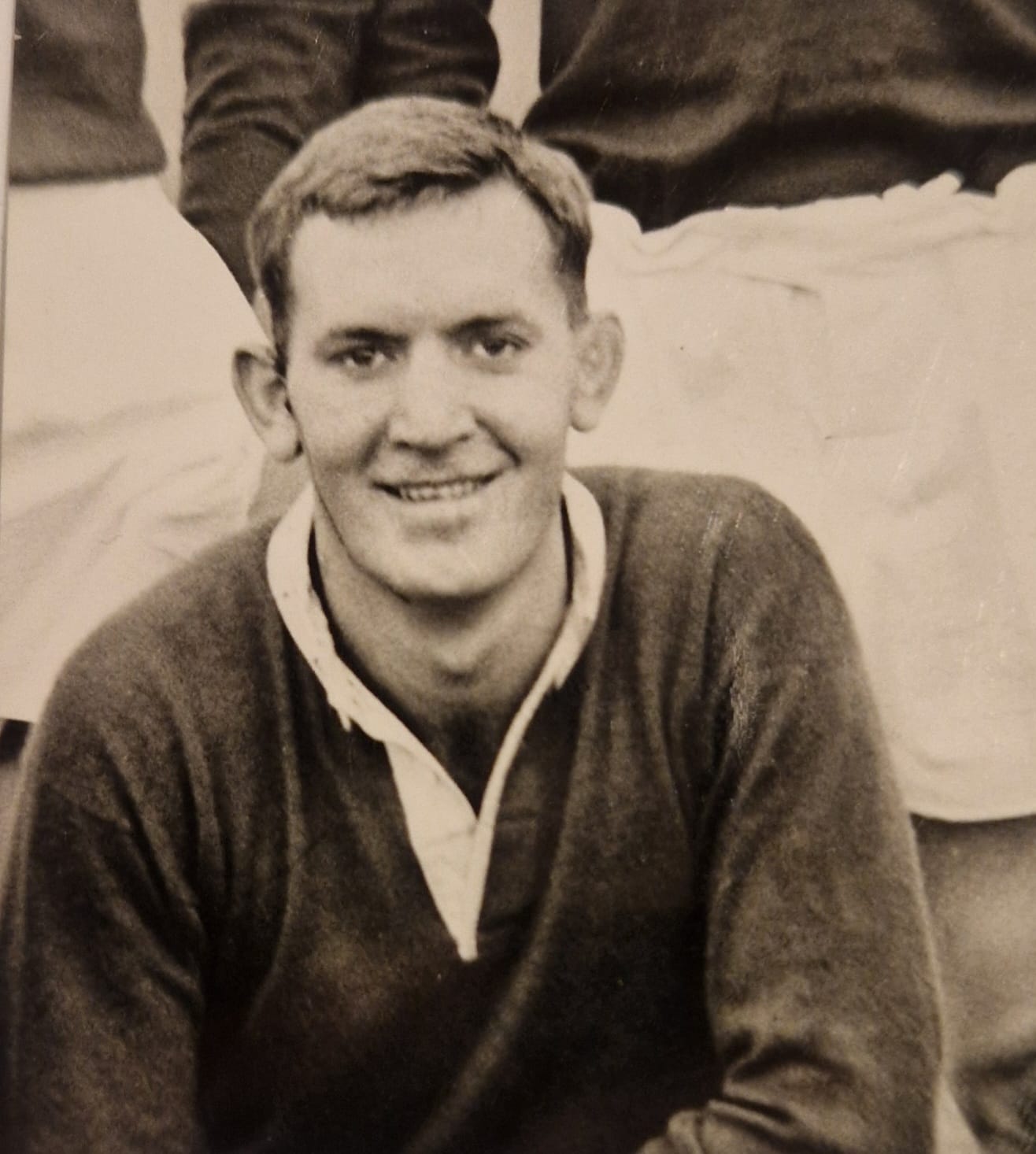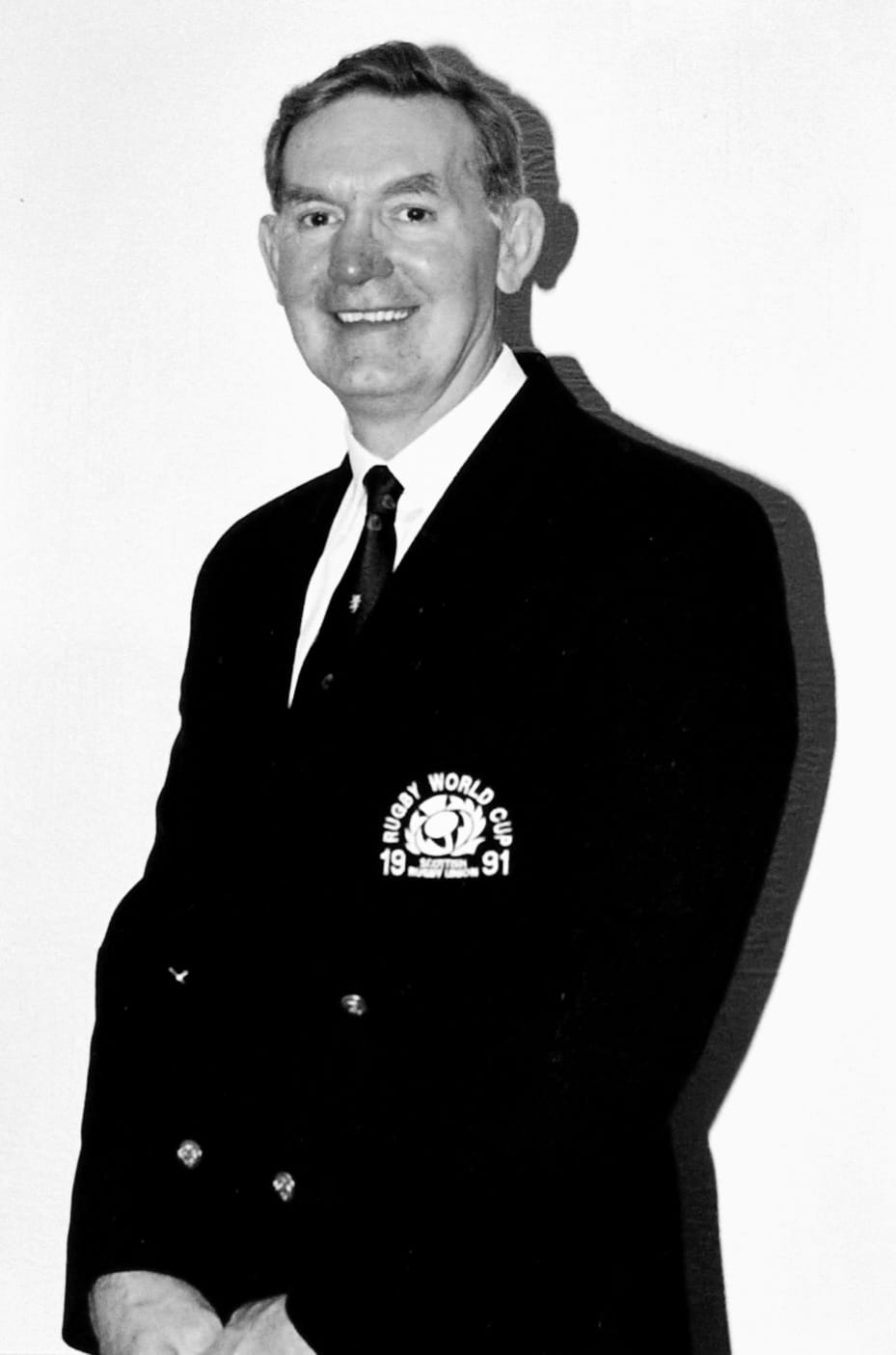Obituary: Derrick Grant
12 Nov 2024Scottish Rugby is immensely saddened to learn of the death on Sunday past (10 November) of former Scotland and Hawick back-row forward and head coach Derrick Grant. He was 86.
Scottish Rugby is immensely saddened to learn of the death on Sunday past (10 November) of former Scotland and Hawick back-row forward and head coach Derrick Grant. He was 86.

Grant was part of the “ultimate rugby think-tank”, a quiet and humble man, ahead of his time in his ability to analyse a game and get the best out of his charges.
“He was as hard as nails on the pitch,” recalled his fellow Scotland and British & Irish Lions representative, Andy Irvine, “but Derrick was always keen to understand why, as a player, you had done certain things. He was a deep, deep thinker on the game and was such a decent fellow.”
Derrick Grant was born in Hawick on 19 April,1938. His eldest brother, Jack, was a Scotland trialist just after the war, while his other brother, Oliver, won six caps for Scotland between 1960 and 1964, in both back-row and second-row. Derrick, himself won 14 caps for Scotland between 1965 and 1968.
Educated at Hawick High School, Derrick Grant played for Scotland under-15 against their Welsh counterparts on a Saturday and started work the following Monday as an apprentice frame-worker at Braemar (that subsequently became part of Pringle’s knitwear) in 1952.
He worked for the company for some 49 years, transitioning into management as it meant he’d be able to get the necessary night’s off for his rugby playing then coaching.
“It did mean he had to adapt his management style, though,” recalled his son, David “as at Pringle he was in charge of around 200 women, who would be quick to tell him ‘Mind, I’m no one of your rugby players’!”
Derrick made his first XV debut for Hawick as an open-side in 1953. He was just 15-years-old, a remarkable achievement.
He had two years’ national service in the Army in the Tank corps, initially in Catterick and then in Germany.
Prior to National Service, he had met Elsie at the Crown Hotel in Hawick and on his return, they married on 28 August 1961.
Having captained the Hawick side to the unofficial club championship and Border League and been part of the South team that won nine games out of ten, losing only to the All Blacks, Derrick made his Scotland debut away to France at the Stade Colombes in Paris in January 1965.
Later that year, he featured in a draw against England at Twickenham and a win against South Africa at Murrayfield. In his 14 caps, Derrick enjoyed a 50%-win ratio.
In 1966, off the back of victories against Ireland – Scotland’s fourth successive triumph at Lansdowne Road – and England, he was selected for the British & Irish Lions tour of Australia and New Zealand.
He scored his only try for Scotland in that 11-3 win against Ireland, dotting down from a scoring pass from his fellow Borderer, Eck Hastie.
He had played two games in Australia for the Lions before injury intervened and he was also restricted when the Lions crossed the Tasman, playing in “just” eight games in New Zealand.
Derrick, who had represented the Barbarians in three matches between 1965 and 1967, won his last cap for Scotland against France at home in 1968.

A concussion in that game, led to his playing retirement, but staying in the same street in Hawick as another visionary Scotland and Lions forward, Hughie McLeod OBE, it was almost inevitable that Derrick moved into coaching.
“Hughie had brought back such knowledge from his Lions tours in the 1950s and he introduced organisation to the Hawick club,” explained David Grant.
“My dad bought into it. He absolutely lapped it up and learned a lot of valuable lessons from that.”
Beginning coaching at the Hawick Trades junior club, then working with another Hawick and Scotland great, the late SRU past President, Robin Charters, Derrick began coaching Hawick in 1971-72.
He coached the Green Machine to five successive club championship titles from the inauguration of official leagues in 1973-74 and it was no surprise that, working alongside another talismanic Scotland and Lions back-row forward, Jim Telfer, that the South became the dominant force anew in district rugby in Scotland at that time.
In partnership with the likes of Telfer, Sir Ian McGeechan, Dougie Morgan and Richie Dixon, Derrick continued to climb the coaching ladder, taking charge of the national B team.
In 1983, he became assistant coach to Colin Telfer with the Scotland team, steering them to a victory against England at Twickenham, their first since 1971.
Jim and Colin Telfer were in charge for the 1984 Grand Slam, but Derrick was appointed as head coach in the 1985/86 season, beginning with an 18-17 victory against France at Murrayfield ignited by six new caps – Gavin Hastings, Matt Duncan, Scott Hastings, David Sole, Jeremy Campbell-Lamerton and Finlay Calder.
If the 33-6 1986 Murrayfield victory against England was the high point of Derrick’s tenure as Scotland coach, the low was his final game, against England in 1988 which saw the Auld Enemy win 9-6.
During his time as head coach, Scotland won nine of the 18 Test matches and drew one other – the 20-all scoreline against France in Scotland’s first game in the inaugural Rugby World Cup in 1987.
He remained an influential figure with the national team, acting as a lineout and scrums specialist coach during the 1990 Grand Slam campaign.
His son David remembered: “This meant we were allowed a video recorder at home. I sat with my dad for hours on end, watching England line-up for lineout after lineout. He studied their lineout so meticulously, so we were very proud with how our lineout went when Scotland won the Grand Slam.”
Not that Derrick would ever have said so himself. He was never one for putting his name in lights, despite his achievements being of Blackpool illuminations proportions.
He continued to offer his time and expertise to Scottish rugby as a national team selector and national under-21 team manager, retiring from selection after the 2003 Six Nations.
But you were just as likely to see Derrick on a Saturday afternoon on car park duty at his beloved Mansfield Park. Always under-stated, always happy to chat rugby.
Scottish Rugby extends its sincere condolences to Derrick’s wife, Elsie, sons David and Steven, daughter in laws Susan and Ann and their families, plus his many friends in Scotland and beyond.
There will be a memorial service at Hawick Rugby Club at Mansfield Park on Wednesday 27 November at 12.15pm and all are most welcome to attend.
